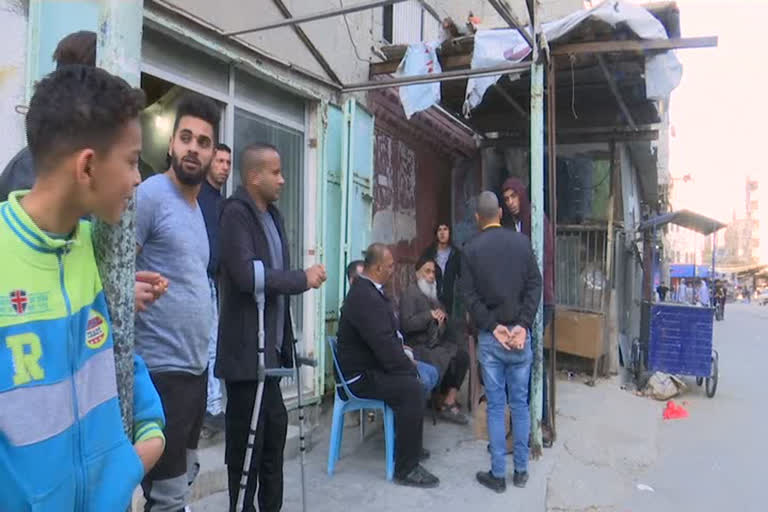Gaza City: Economy of Gaza continues to stall after hitting an all-time low last year. Foreign aid cuts and increasing unemployment rates have left thousands of families fully dependent on food aid and social welfare.
Economist Omar Shaban says there is no economy in Gaza. "There is a group of people who are dependent to a large extent on external relief," he explains. "There is no full economic cycle activity," he adds.
A new World Bank report shows the growth rate in the Palestinian economy is "not able to keep up with the growth in population, resulting in an increase in unemployment and deteriorating living conditions."
More than half of the population in Gaza is now unemployed, making it one of the highest percentages in the world.
Since 2017, the Palestinian Authority in the West Bank has been slashing payments for its former civil servants, hoping to force Hamas into ceding control by limiting its ability to collect local revenues.
In parallel, the US has gradually halted its aid to Palestinians.
As a result, last year Gaza's economy experienced "the deepest economic downturn" not inflicted by fighting and contracted by 7 per cent, according to the report.
Read more:GST collections touch all time high of Rs 1.13 lakh crore
Businessmen have had to close down and remain unable to export their products.
At a small carpentry workshop occupying the ground floor of his Gaza City house, Wael al-Naassan recalls the days when he had a furniture factory that employed 100 workers.
Israel has relaxed the restrictions in recent years, allowing certain exports from Gaza, but they also put a number of materials on a banned list. Israel says the materials' dual-usage nature could be exploited and diverted for military purposes.
In an April report, the World Bank said Gaza's dual-list included 62 items for Gaza and 56 for the West Bank.
Removing dual-use restrictions for legitimate businesses would bring about additional cumulative growth of 11 per cent to Gaza and 6 percent to the West Bank by 2025, the report said.
Another impediment is the dispute between Hamas and the PA in the West Bank over fiscal control, which obliges exporters to pay double the amount of tax; to the respective authorities.
"Gaza doesn't have the purchasing power and the industry sector is not good enough, it's not in good shape to work," says Omar Shaban.
"Gaza needs finance, they need cash, they need an input that make, that keeps, or make the economy cycles," he says.
Unemployment has left most people in the neighbourhood at the mercy of food coupons and borrowing a few food items from one another.



